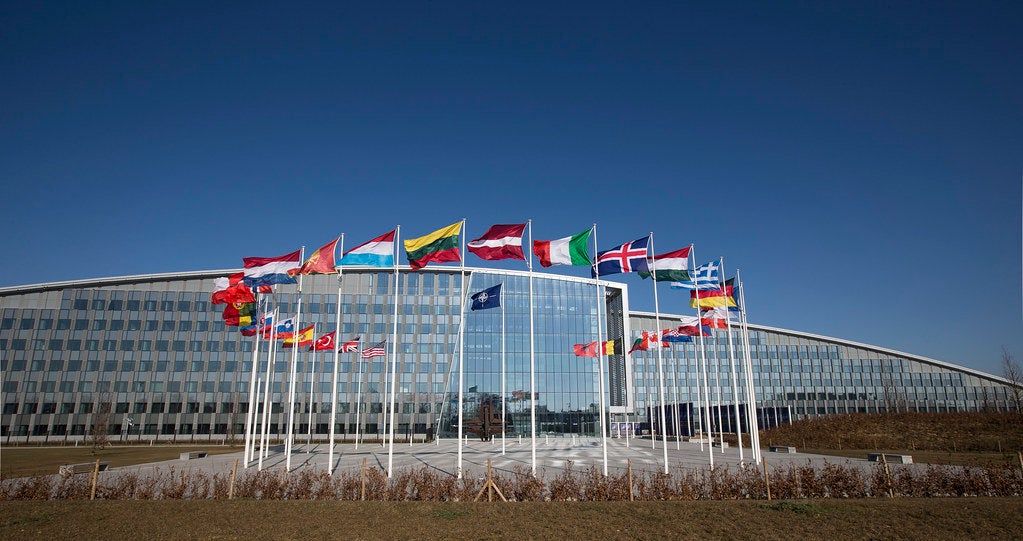Socrates Program: 2022 Summer Seminars
Socrates Summer Seminars
The Socrates Program is excited to host our annual Summer Seminars this July 8-11 in Aspen, CO. Seminar tuition is $2,500. Limited scholarships are available by application. If you would like to apply for a scholarship, please do so here. We will be hosting five seminars with new and veteran moderators.
Please see below for descriptions of the current seminar offerings:
Contending with the Climate: Exploring How to Mitigate and Manage Natural Disasters and Extreme Weather
Climate change is a politicized topic where the science, policy, and public discourse often diverge. Individual countries and international bodies have sought to decrease emissions and reform energy use through accords and policies. Current climate models and predictors, however, signal warming trends and melting icecaps have accelerated rather than slowed. If these trends continue, extreme weather and correlated natural disasters will increase. Fires in California, heat waves in France, floods in China. Crisis management for natural hazards will become increasingly important in the future. In this seminar participants will ask what climate change policies have been effective and at what cost? How can governments, locally, nationally, and globally, effectively manage the extreme weather events that are forecast?
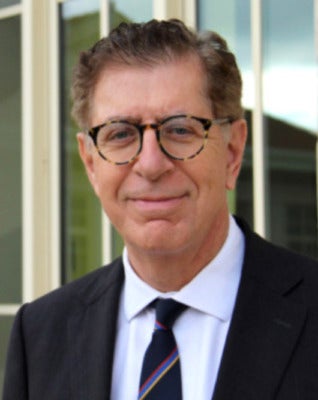
Moderator: Costas Synolakis is President of Athens College. In 1985 he was appointed Professor of Civil, Environmental and Aerospace Engineering at the University of Southern California (U.S.C.) Viterbi School of Engineering where, in 1996, he founded the USC Tsunami Center. He is an internationally renowned pioneer in the field of tsunami research and other natural hazards.
Fixing the Fourth Estate: Rebuilding Trust in News Media
Trust in the U.S. news media has plummeted for a variety of reasons, including hyper-polarization, the erosion in local journalism and historic failures to cover diverse communities. What can be done to bolster broader support for fact-based, nonpartisan news? Before journalism can help save our democracy, does it first have to save itself?
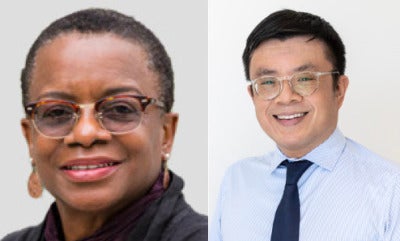 Moderators: Kathleen McElroy, director and professor of the School of Journalism at The University of Texas at Austin. She previously was an assistant professor at Oklahoma State University, where she taught news reporting and sports media. Sewell Chan, the editor in chief at The Texas Tribune. Previously he was a deputy managing editor and then the editorial page editor at the Los Angeles Times, where he oversaw coverage that was awarded a Pulitzer Prize for editorial writing in 2021.
Moderators: Kathleen McElroy, director and professor of the School of Journalism at The University of Texas at Austin. She previously was an assistant professor at Oklahoma State University, where she taught news reporting and sports media. Sewell Chan, the editor in chief at The Texas Tribune. Previously he was a deputy managing editor and then the editorial page editor at the Los Angeles Times, where he oversaw coverage that was awarded a Pulitzer Prize for editorial writing in 2021.
The Metaverse and Me: The implications of living, working and playing in alternate realities
The seminar will explore the origins of the idea of a metaverse. We will look at the early attempts at building alternative worlds from Sims to 2nd Life and to what various companies and municipalities are building today. And we’ll examine what Meta, the company formerly known as Facebook, has in store for us and whether that’s a future we’ll want to inhabit.
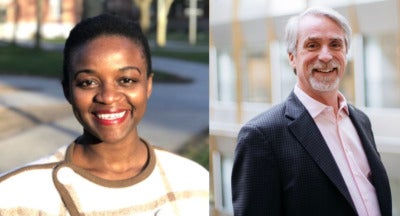 Moderators: Stephen Balkam is the Founder and CEO of the Family Online Safety Institute (FOSI), an international, nonprofit organization headquartered in Washington, DC. FOSI’s mission is to make the online world safer for kids and their families. Julie Owono is the Executive Director of the Content Policy & Society Lab (CPSL) and a fellow of the Program on Democracy and the Internet (PDI) at Stanford University. She is also the Executive Director of digital rights organization Internet Sans Frontières, one of the inaugural members of the Facebook Oversight Board, and an affiliate at the Berkman Klein Center at Harvard University.
Moderators: Stephen Balkam is the Founder and CEO of the Family Online Safety Institute (FOSI), an international, nonprofit organization headquartered in Washington, DC. FOSI’s mission is to make the online world safer for kids and their families. Julie Owono is the Executive Director of the Content Policy & Society Lab (CPSL) and a fellow of the Program on Democracy and the Internet (PDI) at Stanford University. She is also the Executive Director of digital rights organization Internet Sans Frontières, one of the inaugural members of the Facebook Oversight Board, and an affiliate at the Berkman Klein Center at Harvard University.
Americanism: Confronting our History to Get to a Better Version of Ourselves
The United States is attempting to become a kind of nation that the world has never seen – a large multiracial democracy without racial hierarchy or caste. As our history demonstrates, creating and maintaining such a country is exceptionally difficult. Today, conversations about racism in America continue to trip up our ability to find connection across difference and come to agreements on how to best to protect and strengthen our democracy. And the issue extends beyond questions of systems and institutions into contested ideas about the American identity. Can a multiracial nation have a unifying national identity? And can the Americanism of a nation plagued by historical and contemporary inequality ever be expansive enough to accept each of us? We are a nation founded on the ideals of equality, justice, liberty, and democracy that has resisted living up to them in full measure since our inception. Can we become, at long last, a more perfect Union.
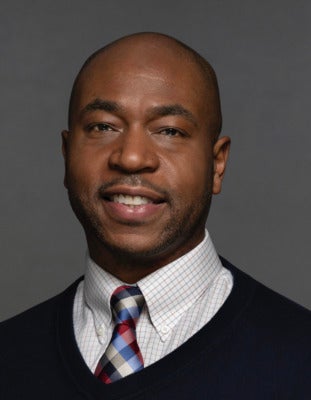
Moderator: Theodore (Ted) R. Johnson is a senior fellow and the director of the Fellows Program at the Brennan Center for Justice. His work explores the role that race plays in electoral politics and the American identity. Previously, he was a national fellow at New America and a research manager at Deloitte. He is also a retired commander in the U.S. Navy following a two-decade career that included service as a White House fellow, military professor at the U.S. Naval War College, and speechwriter to the chairman of the Joint Chiefs of Staff.
Thinking about Privacy and Surveillance
Increasingly as we rely on computers and technology, our sense of privacy is being redefined by the private sector and governments. Our digital trails — in banking systems, personal and professional correspondence, social interactions — have become monetized as we have become the product. At the same time, democratic countries (including the United States) surveil their citizens for national security purposes. Authoritarian countries, such as China, are actively monitoring their citizens, leveraging machine learning and visual recognition, to actively track their population. Whether you share your biometrics with a private DNA testing site or your face with a fun app, your most personal data is being held by corporations who share your information for profit or can be exploited by governments depending on the legal and policy frameworks. This seminar explore how we will adapt our laws, policies, and values to guide governments and the private sector to protect our privacy? What does privacy mean in a world where CCTV cameras and visual recognition can potentially always track us? Is our data safer in the hands of private entities or the state? The modern digital dilemma revolved around the central question of whether by curtailing our government’s ability to surveil its citizens are we threatening our national security, and will our competitiveness be disadvantaged against nations who approach privacy rights though a state lens?
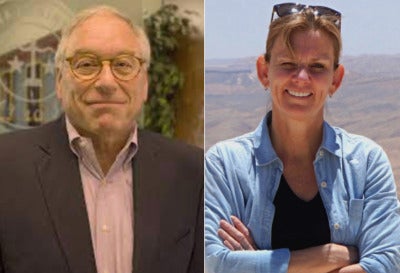
Moderators: Dina Temple-Raston, host and executive producer of CLICK HERE, a podcast about all things cyber and intelligence from The Record.media. and Harvey Rishikof, Director of Policy and Cyber Security Research and Visiting Research Professor at the University of Maryland (Applied Research Laboratory for Intelligence and Security) a Visiting Professor of law at Temple Law School and Senior Counselor to the American Bar Association Standing Committee on Law and National Security.
Frequently Asked Questions:
What is a Socrates seminar?
The Socrates Seminar is a roundtable discussion / collaborative weekend-long event for participants from different fields. Participants are asked to contribute their understanding of and reactions to carefully selected readings, with the guidance of moderators who are experts in their sector. This is not a panel discussion, nor is it a tutorial where the experts share their knowledge. The roundtable discussion format is a multilateral debate moderated by the moderator(s). The seminars are held on Aspen Meadows Resort campus.
How many seminars can I participate in?
You will register for one seminar of up to 24 participants for the entire weekend. Meals and programming will be enjoyed with the entire group which includes participants from all five concurrent seminars.
What if my preferred seminar is sold out?
Please reach out the Socrates Team directly via email and one of our team members will assist you. The team will work with you to get you into the best seminar for you.
What does tuition cover?
Tuition includes seminar attendance and materials and meals during the program, which begins at 6pm on Friday evening and ends at 12 pm on Monday. It does not include dinner on Saturday, July 9th. Socrates Annual Dinner tickets can be purchased separately (discounted tickets for Socrates participants are available as an add-on when you register for the seminar).
Are scholarships available?
Scholarships for tuition assistance are available through the Socrates Program. The application can be found here.
If I am not attending the Annual Benefit Dinner on Saturday, July 9th, what are my dining options?
The Aspen Meadows Resort offers Platos Restaurant on campus along with their lounge, Lime Slicer. Other dining options in Aspen can be found here. Advanced recommendations are highly recommended.
Can I bring a guest?
If you would like to bring a guest to join you for meals, you are welcome to for $500.00. A ticket to the Annual Benefit Dinner will be an additional $300.00. These both can be purchased as add-ons when you register.
What transportation will be provided at the event?
If you are a guest of the Aspen Meadows Resort, they will take care of your arrival and departure transportation to and from the airport. If you are staying at an alternative location, taxis and a free local bus are available.
Private transportation will be provided on Friday night for the opening dinner at Hotel Jerome. The shuttles will loop between the Aspen Meadows Reception Center and Hotel Jerome between 5:30pm-6:30pm and return at 9:00pm to shuttle guests back until 10:00pm.
The Aspen Meadows offers a complimentary shuttle that runs into Aspen every 30 minutes.
What is the timing of the seminars and programming for the weekend?
You can view the tentative agenda below, which has the set times for the seminars and meals (the event locations and optional activities will be added closer to the event). To join for the whole experience, you will want to arrive in Aspen by 6pm on Friday and depart after 12pm on Monday.
From 12:00pm until 5:00pm daily, you are welcome to explore and engage with everything Aspen has to offer. We have partnered with Blazing Adventures to offer some special trips to Socrates participants.
What is the dress codes for the seminar and Benefit Dinner?
Although we do not require a specific dress code, most people dress business casual in the seminar rooms and bring something a bit more dressy for the evenings. Aspen is relatively cool in the mornings but will warm up by the time you leave the seminar room, so we recommend dressing in layers.
Tentative Socrates Summer 2022 Agenda
Health and Safety Guidelines for In Person Events
The Aspen Institute is committed to creating a safe seminar experience for all participants. Please see our COVID-19 safety guidelines here.
These guidelines will be regularly updated to meet the latest health and safety guidance of the CDC and local authorities. If you anticipate any issues or have any concerns, please contact us at socrates@aspeninstitute.org.

